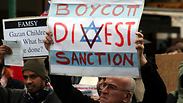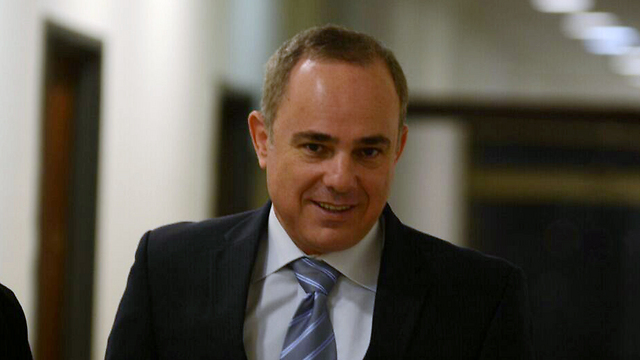
Foreign Ministry finds itself battling Israel boycott alone
Just one ministry official is in charge of the fight, now aided by a diplomatic cadet. 'We feel like soldiers in a battle, but without resources,' say staffers.
"Smythys (sic) Toys Jervis St have removed Amav products and other products made in Israel from our shelves," read a sign displayed last summer on the door of one of the Dublin branches of Irish superstore Smyths Toys.
A security officer from the Israeli Embassy who happened to pass by the store quickly reported the sign; and within minutes, Deputy Ambassador Nurit Tinari-Modai responded with a provocative post on her Twitter account.
"So what’s next?" she wrote, "No dogs or Jews allowed?"
Shocked reactions soon followed, with the hundreds of social media "shares" doing the job and prompting the toy chain to instruct the branch to remove the sign and lift its boycott.
- Netanyahu: UK students boycotting Israel but not Islamic State
- Tami Arad / Is Israel finally taking the world's shifting attitude to heart?
- Noah Klieger / It's time for an Israeli counterattack against BDS lies
This incident, however, represents merely a small victory in the comprehensive battle in which Israeli embassies around the world are currently embroiled. And Israel's ambassadors are at the forefront of this battle essentially alone, without the necessary budgets and resources to stem the rising international tide.
Soldiers without resources
Two years ago, the Israeli government decided to place responsibility for combatting the boycott and BDS movement in the hands of the Strategic Affairs Ministry, now the Strategic and Intelligence Affairs Ministry. The previous minister, Yuval Steinitz, tried to formulate a comprehensive plan to fight the boycott – but nothing much came of it due to lack of government funding.
Today, just a single Foreign Ministry official, Amir Ofek, is in charge of the fight, with the help recently of a diplomatic cadet. "We feel like soldiers in a battle, but without resources," say Foreign Ministry officials. "We are dealing, insanely under-budgeted, with a worldwide phenomenon that is becoming increasingly widespread. It's a joke."
Despite its meager resources, the Foreign Ministry has been successful in thwarting numerous boycott initiatives, with most of the work being carried out behind the scenes. When, for example, a particular investment fund in the United States was called on to drop its stake in an Israeli company said to be providing explosives to the Israel Defense Forces, the Israeli Consulate was quick to present the facts to the fund's management and prevent the disinvestment.
Sophisticated tactics
"There's no substitute for the embassies' widespread network of connections," Foreign Ministry sources say. "You need to have your finger on the pulse all the time. If you don't get to know activists at least six months in advance, no one will listen to you at crunch time, when faced with boycott demands."
Embassy officials also work with the municipalities in an effort to thwart boycott initiatives. It turns out that in many instances, boycott campaigns – frequently initiated by Muslim communities – are funded by municipal budgets set aside for the welfare of local residents. On several occasions, for example, embassy officials in France have warned the mayor of Paris about boycott initiatives involving the misuse of public funds.
The embassies are also very active behind the scenes when it comes to preventing foreign artists from canceling performances in Israel.
"An Israeli ambassador can't call an artist and say: Don't listen to Roger Waters," Foreign Ministry officials admit. "But he can approach an influential agent and ask him to approach the particular artist and convince him to come to Israel and not give in to the boycott."












